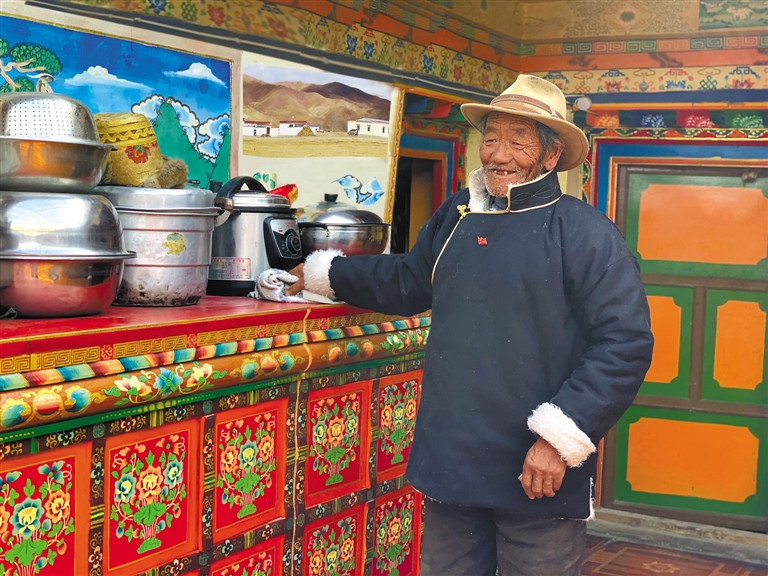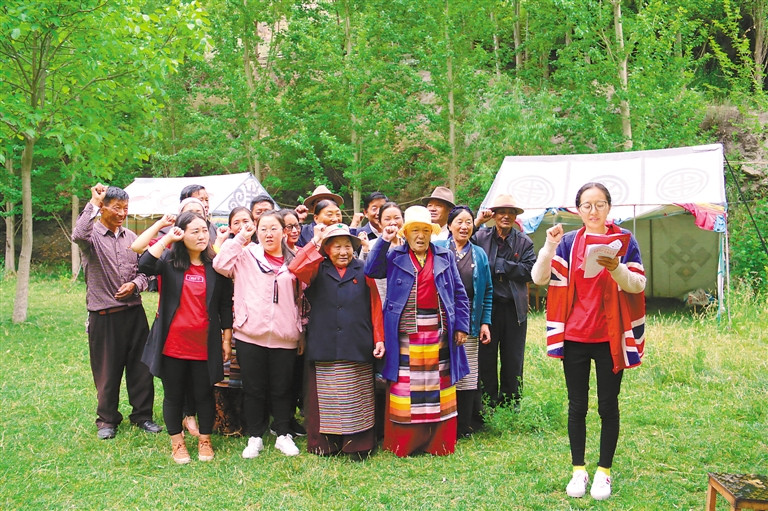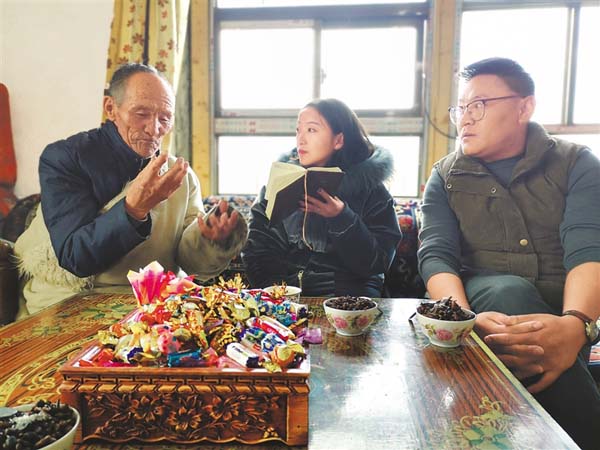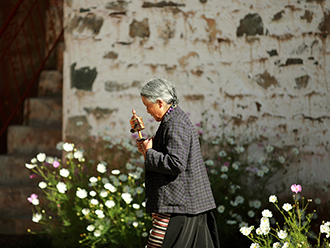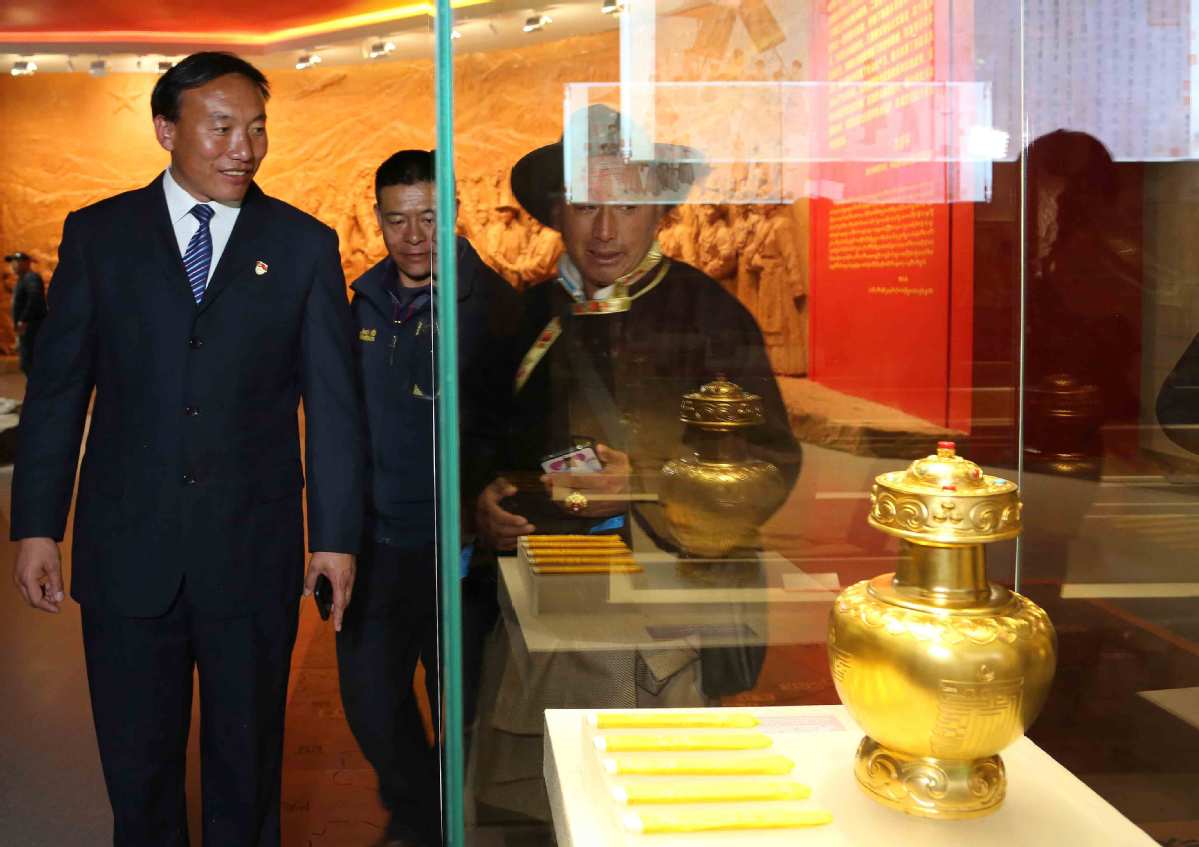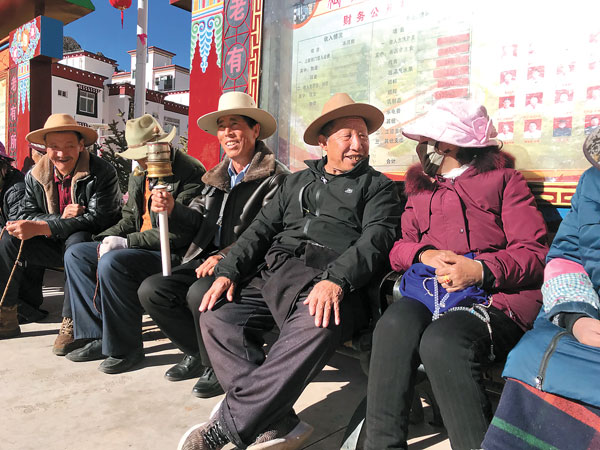Former serf Sonam Ngodrup: Can't forget the hard days of sleeping in the sheep pen
Sonam Ngodrup, born in February 1939, currently 80 years old, is from Delebi Village in Temtok Township, Zogang County, Chamdo City, southwest China's Tibet.
When he was eight years old, he began shepherding sheep for the Guopa family. At 14, he was adopted by his maternal uncle, and he and his parents were all serfs for the Guopa family. They lived a life of hunger and poverty. After democratic reform in Tibet, Sonam Ngodrup gained personal freedom and his life got better and better. Sonam Ngodrup has five sons and five daughters, all of whom live happily in Delebi Village.
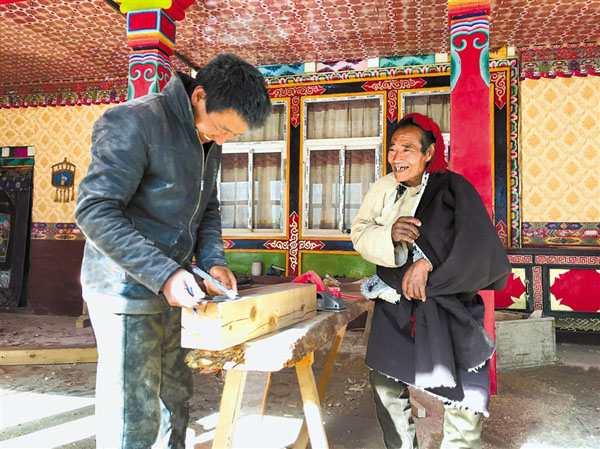
Sonam Ngodrup chats with a carpenter in his second daughter Yuji's home about the changes in their hometown.[Photo/xzxw.com]
When I first saw Sonam Ngodrup, he had a red band tied around his head, and was wearing a black and white Tibetan robe. He was extraordinarily spirited. He was grinning and walked with a limp.
"Look at my leg. It's not easy to walk now. This is the evidence of the evils of the old society," Sonam Ngodrup said with indignation as he pointed to his right leg.
"When I was eight years old, I started shepherding sheep for the serf owner. Every day I set off at dawn and walked forty or fifty sheep 10 kilometers to Kalung Mountain. One winter, the snow was particularly heavy, and the mountains were covered with thick snow. When I was herding the sheep, a piece of wood tore through my shoe, and blood came pouring out. The white snow was stained red…" recalling the past, Sonam Ngodrup chokes up with emotion.
"At that time, it was a blessing to not starve or freeze to death. This little injury was nothing," Sonam Ngodrup said helplessly.
In old Tibet, while the animals had enough to eat, a majority of serfs lived miserable lives without enough food or clothing.
Sonam Ngodrup recalled: "At the time I crowded with more than 20 other serfs inside a dark black tent. There was no bedding, and the long nights were cold and unbearable. Sometimes I snuck out to the sheep flock to get warm. Now I can't forget the days I slept in the sheep pen."
"The Guopa family promised to pay me two sheep a year, but after a year, they didn't give it to me. I was also beaten often." Sonam Ngodrup's words are full of helplessness.
When Sonam Ngodrup was 14, he was adopted by his maternal uncle Parga Chogyal. He no longer had to shepherd for the serf owner, but he still could not get rid of his tragic fate.
"At that time, we didn't have enough to eat, and we had to farm the serf owner's land. Our family had to farm dozens of the serf owner's land," Sonam Ngodrup said with his eyes full of tears.
In 1959, Tibet's democratic reform overthrew the dark and cruel feudal system of serfdom. Sonam Ngodrup and his family were given land and sheep.
"I will never forget the scene of my family hugging and crying when we were assigned the land," Sonam Ngodrup said excitedly.
He said: "Now the days are getting better and better. If I get sick, I have medical insurance. Housing is subsidized, and the children go to school for free. Those are things I couldn't even imagine before."
As he speaks, Sonam Ngodrup's eyes are filled with happiness and longing for this better life.
Editor: Tommy Tan.
Tibet Stories
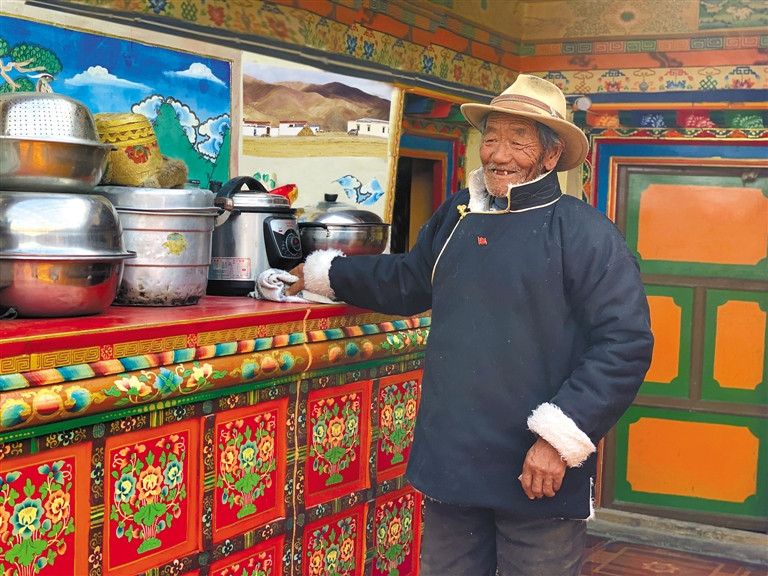
Phentok: Home is a word with more meanings
"Home" is no longer just a place in which he once hoped to shelter from the wind and rain. N...
Editor’s Choice
- Prominent Belgian sinologist says nobody can deny rapid economic development of Tibet
- Tibet's cultural industry sees sound development
- 11th Panchen Lama: abolition of serfdom engraved in the minds of the people
- Eco-friendly toilet to be set up at 7,028m on Mt. Qomolangma
- Tibet establishes HIV/AIDS prevention, treatment association
